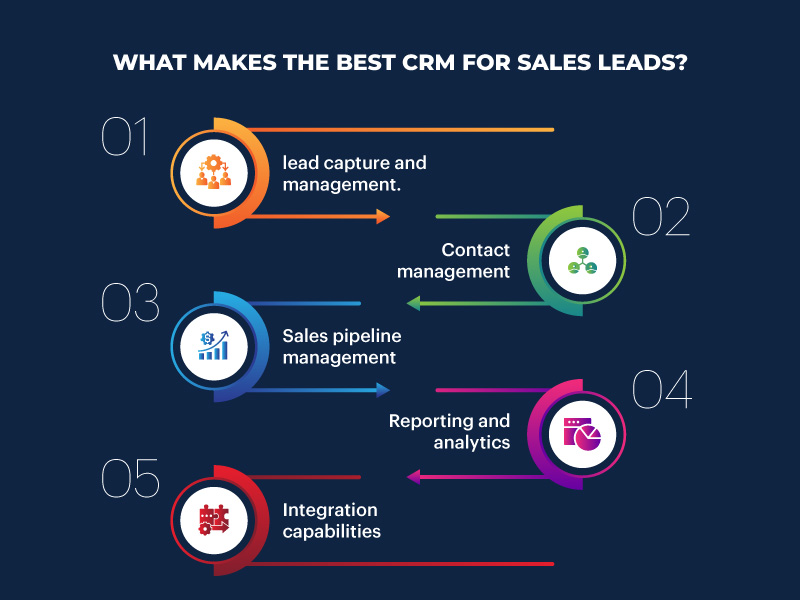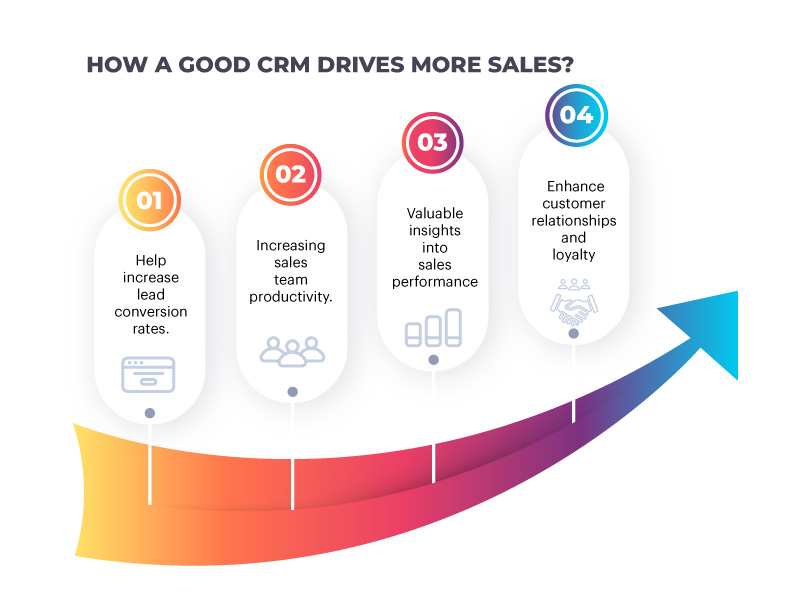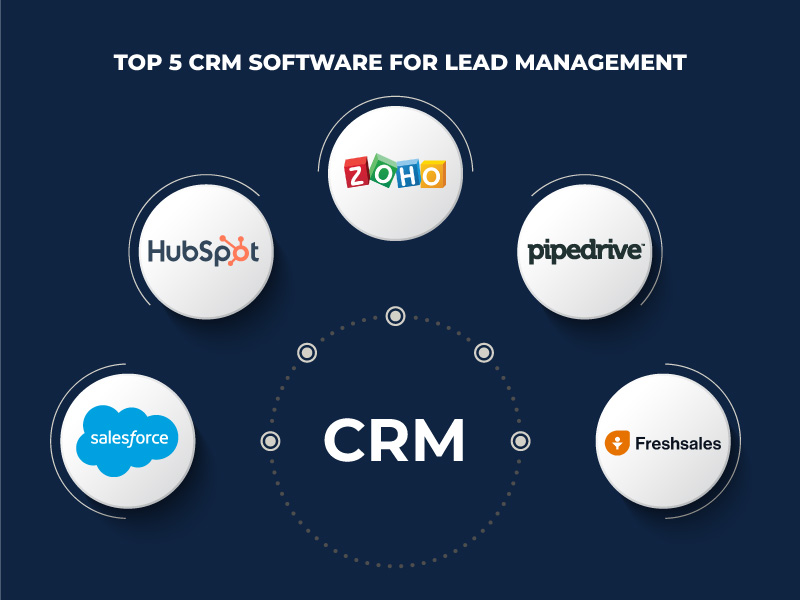What Makes a Good CRM for Sales Lead?
A good CRM for sales lead should have easy data management, automation, forecasting, and reporting feature. Find more what makes a good CRM.

Introduction
The importance of having an effective CRM system in today’s digital age cannot be overstated, as it can make all the difference in how you manage your sales leads and ultimately close deals.
And let me tell you, the right CRM system can be a game-changer for your sales game. With a reliable CRM sales lead tool, you can easily track and manage your customer interactions, streamline your sales process, and improve your bottom line.
Think of it this way: if sales is a game of chess, then a CRM system is your knight in shining armor, helping you navigate your moves with precision and strategy.
A good CRM system can help you make sense of the massive amounts of data and interactions that come with managing sales leads, allowing you to better understand your customers and tailor your sales pitches to their unique needs and preferences.
But don’t just take my word for it.
Think back to the last time you interacted with a salesperson.
Did they seem to understand your needs and offer solutions that aligned with your goals? Or did they seem to be reading from a script, offering cookie-cutter responses that didn’t quite hit the mark?
The difference between the two could very well come down to whether or not the salesperson had a CRM system at their disposal.
So, let’s get down to business.
What features do you think are essential in a CRM system for sales leads? Are you looking for a system that prioritizes lead scoring and pipeline management, or do you need a system that allows for easy integration with other tools in your sales stack?
Maybe you’re looking for a system that offers robust reporting and analytics capabilities, so you can track your progress and identify areas for improvement.
The beauty of CRM systems is that they can be customized to fit your unique needs and preferences. Whether you’re a small business looking to manage a handful of leads or a large enterprise with a massive sales team, there’s a CRM system out there that can help you level up your sales game.
So, are you ready to take the first step towards better sales lead management?
Let’s explore the world of CRM systems together.
What is a CRM?
Simply put, a CRM is a software system that allows businesses to organize and track their customer data, such as contact information, interactions, purchases, and preferences. By centralizing this information in one place, businesses can gain a deeper understanding of their customers and their needs and use this knowledge to improve their products or services and build stronger relationships with customers.
Think about it – have you ever received a personalized email from a company that made you feel valued and understood? That’s probably thanks to their CRM system, which allowed them to tailor their communication to your specific interests and preferences.
In fact, according to a study by Nucleus Research, companies that use CRM systems see an average return on investment of $8.71 for every dollar spent.
That’s a pretty impressive ROI!
Now, let me ask you – have you ever had a frustrating experience with a company that seemed to have no idea who you were or what you had previously purchased from them?
Maybe you received irrelevant marketing emails or had to repeat your information multiple times to different representatives. That’s the kind of experience that a good CRM system can help businesses avoid.
According to a report by Grand View Research, the global CRM market size was valued at USD 47.8 billion in 2020 and is expected to grow at a compound annual growth rate (CAGR) of 14.2% from 2021 to 2028.
This growth is being driven by the increasing adoption of cloud-based CRM solutions, as well as the growing demand for customer-centric business strategies.
So, have you ever interacted with a company that you feel has a great understanding of your needs and preferences?
Also Read: https://valasys.com/crm-automation-a-look-into-ai-in-lead-generation/
What Makes the Best CRM for Sales Leads?

Now, let’s get into the nitty-gritty of what makes a great CRM system for sales leads.
As you may have guessed, a CRM system is more than just a database for customer information. It’s a powerful tool that can help streamline your sales pipeline and increase your bottom line.
1. One of the most crucial features of a good CRM system is lead capture and management.
Did you know that companies that automate their lead management process see a 10% or greater increase in revenue in just 6-9 months?
A robust CRM system should make it easy to capture and manage leads, whether they come from your website, social media, or other channels. With lead management features, you can ensure that you’re following up with leads in a timely manner and nurturing them through the sales pipeline.
2. Contact management is another critical feature to look for in a CRM system.
A good CRM system should make it easy to store and manage customer contact information, such as email addresses and phone numbers. But it should go beyond that – it should also allow you to segment your customers based on specific criteria, such as their buying behavior or demographics.
This can help you personalize your communication with customers and tailor your sales pitches to their unique needs and preferences.
3. Sales pipeline management is yet another important feature to consider when choosing a CRM system.
Did you know that businesses that implement a CRM system can increase their sales by up to 29%?
By tracking and managing the various stages of the sales process, from initial contact to closing the deal, a CRM system can help you prioritize your efforts and ensure that no leads slip through the cracks.
4. Reporting and analytics features are also essential in a CRM system.
By tracking important metrics like conversion rates and lead sources, you can gain valuable insights into your sales process and identify areas for improvement. This can help you refine your sales strategies and make data-driven decisions that lead to better outcomes.
5. Finally, integration capabilities are an essential feature to consider when choosing a CRM system.
The ability to integrate with other tools and platforms, such as email marketing or customer service software, can help streamline your workflow and create a more seamless customer experience.
So, what do you think?
Which of these features is most important to your business? Have you ever used a CRM system with robust lead management or sales pipeline management capabilities? Let’s discuss further and explore how a good CRM system can help take your sales game to the next level.
How a Good CRM Drives More Sales?

So, we’ve talked about what features make a good CRM system, but let’s dive into how a CRM system can help drive more sales for your business.
1. One of the most important benefits of a CRM system is that it can help increase lead conversion rates.
By keeping track of where leads are in the sales process, sales teams can prioritize their efforts and focus on the most promising leads. This can help to ensure that leads are receiving the right messaging and attention, increasing the likelihood of converting them into paying customers.
2. Another way a CRM system can help drive sales is by increasing sales team productivity.
With automation of certain tasks, sales teams can spend more time on high-value activities, such as building relationships with prospects and closing deals. This not only helps to improve sales outcomes, but also contributes to a more motivated and engaged sales team.
3. Moreover, a well-designed CRM system can provide valuable insights into sales performance, enabling sales teams to identify areas for improvement and make data-driven decisions about where to focus their efforts.
This can help to optimize the sales process, ultimately leading to better sales outcomes.
4. Finally, a CRM system can help to enhance customer relationships and loyalty.
By storing and tracking customer interactions, sales teams can provide a more personalized and tailored experience for customers. This can lead to stronger relationships and increased loyalty, contributing to long-term sales growth.
Real-world examples of the positive impact of a CRM system on sales outcomes are abundant.
For instance, Salesforce, a leading global software company, reported that their CRM system helped them achieve a 32% increase in sales productivity and a 25% increase in revenue.
So, have you had any personal experience with a CRM system and its impact on sales outcomes? What features do you think are most important for driving sales growth?
Advantages of Using a CRM for Lead Management
In our last section, we explored the benefits of using a CRM system for driving sales growth. Now, let’s take a closer look at how a well-designed CRM system can specifically benefit sales lead management.
Have you ever struggled to keep track of your leads and follow up with them in a timely manner?
This is where a CRM system can be a game-changer.
By storing all of your lead information in one centralized system, you can easily track the status of each lead and ensure that you’re following up with them in a timely and relevant manner.
But it’s not just about streamlining the process.
A CRM system can also foster better collaboration among sales teams.
By sharing lead information and insights, sales teams can work together more effectively and efficiently, ensuring that leads are being properly nurtured and that sales efforts are aligned across the organization.
And let’s not forget about the power of data-driven decision making.
By tracking metrics such as conversion rates and pipeline velocity, a CRM system can provide valuable insights into sales performance. This can help sales teams identify areas for improvement and make data-driven decisions about where to focus their efforts.
Ultimately, a well-designed CRM system can also enhance customer satisfaction and retention.
By storing and tracking customer interactions, sales teams can provide a more personalized and tailored experience for customers. This can help to build stronger relationships and increase loyalty, ultimately leading to increased sales and revenue.
Now, I’m curious – have you had any personal experience with using a CRM system for sales lead management? What benefits have you seen from using a CRM system in your organization?
Top 5 CRM Software for Lead Management

If you’re looking for a CRM software to help manage your sales leads, you’re in luck!
There are plenty of great options on the market, each with their own strengths and weaknesses. Let’s take a closer look at the top 5 CRM software options for sales lead management.
1. First up, we have Salesforce CRM.
This software option is one of the most popular on the market, and for good reason. With advanced features like customizable reporting and analytics, Salesforce CRM is a great choice for larger businesses with complex sales processes. However, it may not be the best fit for smaller businesses or those just starting out due to its high price point and steep learning curve.
2. Next, we have HubSpot CRM.
This free CRM software option is a great choice for small to medium-sized businesses that are just getting started with sales lead management. With basic features like contact management and lead tracking, HubSpot CRM is a user-friendly and affordable solution.
3. Zoho CRM is another cloud-based CRM software option that offers a comprehensive range of features for managing sales leads.
However, its somewhat cluttered interface and limited mobile app functionality may not be ideal for all businesses.
4. If you’re looking for a sales-focused CRM software option, Pipedrive is a great choice.
With features like lead and pipeline management and contact tracking, Pipedrive is a great choice for small to medium-sized businesses that prioritize sales-focused features and simplicity in their CRM solution.
5. Finally, we have Freshsales, a CRM software option designed specifically for sales teams.
With advanced features like customizable reporting and analytics, Freshsales is a comprehensive CRM solution for businesses of all sizes. However, its limited free version and somewhat complex interface may be drawbacks for some users.
When choosing a CRM software for sales lead management, it’s important to consider your business’s unique needs and priorities. Have you used any of these CRM software options before? What was your experience like?
Wrapping It Up
I hope you’re feeling inspired to level up your sales lead management game with a solid CRM solution.
As I mentioned earlier, using a CRM can have a huge impact on your business’s success, with studies showing that businesses with a CRM achieve 65% more sales quotas than those without. (Source:Hubspot)
That’s a compelling reason to consider implementing one for your business!
Now, let’s talk about your experiences with CRMs. Have you used one for sales lead management before? If so, what features did you find most helpful?
Maybe you appreciated the ability to track leads through the sales pipeline, or the ability to generate customized reports and analytics. Or maybe you found that having a centralized database of contacts and communication history was a game changer for your team’s productivity.
On the other hand, maybe you’ve had a less-than-stellar experience with a CRM and found it to be clunky or overly complex.
I’d love to hear about your struggles as well so can bet that this blog can help guide you towards a better fit.
In terms of the top 5 CRM software options we discussed, did any of them catch your eye as a potential fit for your business? Are there any features or drawbacks that particularly stood out to you?
Don’t be afraid to ask questions and share your thoughts – I am here to help!



